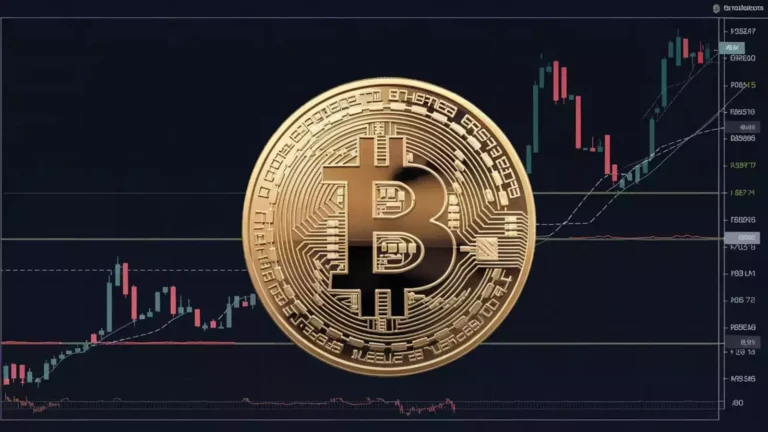Bitcoin’s price is climbing, and the dream of it hitting $100,000 is getting closer to reality. What was once seen as an overly optimistic fantasy is now being supported by actual actions and voices from high-level policymakers. From politicians adopting the famous “laser eyes” trend to real laws and initiatives being introduced, the race to a $100K Bitcoin has become a serious political and financial issue.
The Laser Eyes Trend: From Meme to Movement
The “laser eyes” trend started as a fun way for crypto enthusiasts to show their belief in Bitcoin reaching $100K. People added glowing red laser eyes to their profile pictures to symbolize their bullish stance on Bitcoin. While this was mostly seen as a playful meme during the last bull cycle, some important politicians jumped on the trend, signaling that they truly believed in Bitcoin’s potential. And now, it’s not just a meme—it’s gaining real-world significance.
1. Nayib Bukele: Bitcoin’s Bold Pioneer
Salvadoran President Nayib Bukele took things to the next level when he made Bitcoin legal tender in 2021. Despite some setbacks in the adoption process, such as technical difficulties and lower-than-expected daily usage, Bukele has seen some massive successes. El Salvador managed to pay off $800 million in debt, boosting investor confidence and proving many critics wrong. As Bitcoin inches closer to $100K, Bukele’s bold move could become a huge success story.
Why it matters: Bukele’s bet on Bitcoin shows how adopting crypto could help countries financially, especially in terms of debt management and financial inclusion. If Bitcoin reaches $100K, El Salvador’s decision could be seen as a revolutionary success.
2. Joe Biden: The Unlikely Bitcoin Ambassador
President Biden unintentionally joined the Bitcoin conversation when he posted a laser-eyed profile picture on social media, which crypto fans initially thought was a signal of support for Bitcoin. While Biden himself isn’t a Bitcoin fan, his administration has proposed stricter crypto regulations, which has sparked debates over how these rules will impact the market.
Why it matters: Biden’s actions show how even government leaders, who aren’t always pro-crypto, influence the market through policy. The regulatory framework he pushes could shape the future of cryptocurrencies in the U.S., either fostering innovation or limiting it.
3. Cynthia Lummis: Bitcoin’s Champion in Congress
Senator Cynthia Lummis is one of Bitcoin’s biggest advocates in U.S. Congress. She’s worked to create clear regulations for Bitcoin and is pushing for a Bitcoin Reserve Act to buy and hold Bitcoin as a national hedge against debt. If successful, this could lead to the U.S. government holding massive amounts of Bitcoin—potentially driving its value even higher.
Why it matters: If Lummis’s legislation passes, it could set a precedent for other countries and institutions to adopt Bitcoin as part of their financial strategy, making it an even more central asset in the global economy.
4. Francis Suarez: Miami’s Bitcoin-Friendly Mayor
Miami Mayor Francis Suarez has been vocal about Bitcoin’s potential and has worked to make Miami a hub for cryptocurrency innovation. His efforts to allow Miami residents to pay for city services with crypto and to hold Bitcoin in the city’s treasury are examples of how local governments can support crypto adoption.
Why it matters: Suarez is showing how cities can lead the charge in cryptocurrency adoption, creating a strong environment for crypto businesses to thrive. This could inspire other cities to follow suit, which could have a huge impact on Bitcoin’s growth.
5. Indira Kempis: Championing Crypto in Mexico
Mexican Senator Indira Kempis has been advocating for Bitcoin’s adoption in Mexico. She’s pushing for Bitcoin to become legal tender and has introduced legislation to promote digital assets in the country.
Why it matters: Mexico’s adoption of Bitcoin could further legitimize it as a global currency. Kempis’s work in educating policymakers could help shape the future of crypto in Latin America, where remittances play a crucial role in the economy.
6. Carlos Rejala: Paraguay’s Bitcoin Mining Advocate
Former Paraguayan Deputy Carlos Rejala has been working to make Paraguay a leading country for Bitcoin mining, thanks to its abundant, cheap hydroelectric energy. Despite challenges with the government, Rejala and other politicians continue to push for crypto-friendly regulations to capitalize on this opportunity.
Why it matters: Paraguay’s push for Bitcoin mining could attract significant investment to the country, boosting its economy. If successful, this model could be replicated in other countries with cheap energy, driving the growth of the Bitcoin network.
7. Elon Musk: The Wild Card
Although not a politician, Elon Musk’s influence on Bitcoin is undeniable. As the CEO of Tesla and SpaceX, Musk has been involved in Bitcoin’s journey, from buying it for Tesla’s balance sheet to influencing Dogecoin’s price. His recent involvement in Trump’s new Department of Government Efficiency (D.O.G.E.) suggests that Musk could still influence government policy, even without a formal political position.
Why it matters: Musk’s unpredictable nature means he could have a big influence on Bitcoin’s price and market sentiment. His endorsement or involvement could push Bitcoin even closer to the $100K mark.
Key Takeaways:
- Laser Eyes = Real Influence: What started as a meme is now a sign of serious belief in Bitcoin’s potential, especially among policymakers.
- Bitcoin’s Global Impact: From El Salvador to the U.S. and beyond, Bitcoin’s adoption by governments could lead to major shifts in global finance.
- Bitcoin’s Future: The $100K price target isn’t just a dream—it’s becoming a possibility, driven by political and financial support from figures like Bukele, Lummis, and others.
Why It’s Important: Understanding how these political figures are shaping Bitcoin’s future is crucial for anyone interested in the crypto space. If Bitcoin hits $100K, it won’t just be a win for crypto enthusiasts; it could change the way global finance works. So, staying informed about these key players and their moves could give you a competitive edge in navigating the ever-changing world of cryptocurrency.



